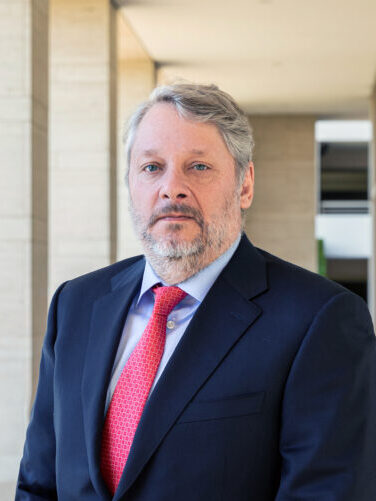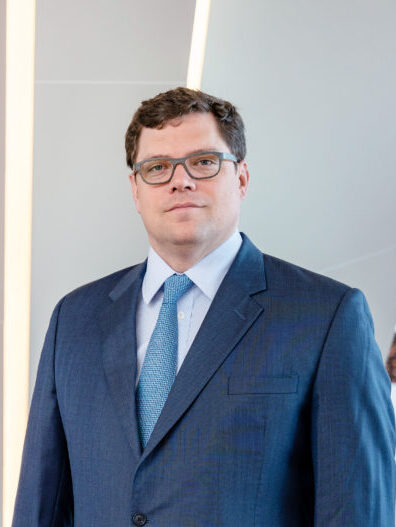The post-pandemic inflation shock and rate-hiking cycle produced a generational reset higher in bond yields, creating a compelling multiyear outlook for fixed income as inflation recedes and risks build in other markets. That’s the view of PIMCO’s Richard Clarida, Andrew Balls and Daniel J. Ivascyn, as they share their latest secular outlook identifying genuine yield advantage.
The global economy continues to recover from pandemic aftershocks, including trade dislocations, outsize monetary and fiscal interventions, a prolonged inflation surge, and bouts of severe financial market volatility. At PIMCO’s 2024 Secular Forum, we explored how the aftereffects of those disruptions are producing some unexpectedly positive developments while also introducing longer-term risks.
Among the positives, disinflation has occurred more rapidly than anticipated in most developed market (DM) economies. Moreover, macroeconomic and inflation risks look more balanced than they did at our prior Secular Forum a year ago. Central banks are also poised to pivot toward rate cuts, likely on different schedules.
However, we see three main areas where investors may be overlooking risks that could develop over our five-year secular horizon:
- Large-scale fiscal stimulus has fueled recent standout U.S. growth, but that exceptionalism has come at a cost: The U.S. is on an unsustainable debt trajectory that the government will ultimately need to address. Meanwhile, financial markets may increasingly need to operate without expectation of government support.
- Artificial intelligence (AI) is poised to realign labor markets and boost productivity, but significant economic impacts may take years.
- Asset valuations in some markets offer investors little apparent cushion. This includes equities, where valuations appear stretched, and lower-rated corporate direct lending markets that are less liquid and more exposed to floating interest rates.
For investors, the early 2020s inflation shock and steep policy rate hikes produced a generational reset higher in bond yields, which now embed significant inflation adjusted cushion. Starting yields are highly correlated with five-year forward returns. That supports an attractive long-term outlook for fixed income returns as inflation recedes, particularly on a risk-adjusted basis relative to other assets. Opportunities across global bond markets also appear uncommonly attractive and diverse, with active country and security selection being key.
We believe this secular backdrop merits a rethinking – and even a reversal – of the traditional 60% stocks / 40% bonds asset allocation paradigm. As banks retreat from certain markets, we also see attractive opportunities in asset-based lending, particularly consumer-related areas given the strength of the U.S. consumer. We expect bank disintermediation and capital needs will create opportunities in commercial real estate (CRE) debt.
Central banks have maintained flexibility, but fiscal space is constrained
While we continue to expect sluggish global growth and more volatile business cycles over our secular horizon, the risks around that outlook appear better balanced than they did a year ago. But while systemic risks to global banking and nonbank financial markets appear contained, regulatory trends are clearly moving toward stricter bank capital and liquidity requirements and we see a growing window for investors to step in as senior lenders in areas once occupied by regional banks, such as consumer lending, mortgage lending, and equipment finance. Commercial real estate will also present opportunities for flexible capital, as bank retrenchment exacerbates challenges posed by declining real estate prices and a more than $2 trillion wall of maturing loans over the coming years.
But the fiscal outlook has not improved – the massive stock of sovereign debt relative to GDP hanging over advanced economies will likely cause yield curves to steepen over our secular horizon, as investors continue to demand more compensation on longer-term bonds.
Authorities will almost surely face more constraints when looking to discretionary fiscal policy to limit the damage from future business cycle downturns, although our baseline is not a sudden financial crisis, but recurring episodes of market volatility when focus shifts to fiscal issues. Despite these fiscal pressures, we believe that the U.S. dollar will remain the dominant global currency, in no small part due to the lack of a viable challenger.
A U.S debt reckoning could eventually come about, but it’s not likely imminent given U.S. advantages in immigration, productivity, and innovation; U.S. Treasuries being a global reserve asset; and the general dynamism of the U.S. economy.
China’s outlook is challenged by property sector recession, an aging population, and less-open export markets. In Europe, fragmented politics will make it difficult to build a comprehensive growth strategy in the face of regional conflict, energy insecurity, and more direct competition from China on higher-value manufactured goods.
Investment implications: fixed income resurgence
Our 2024 Secular Outlook favors a renewed focus on public fixed income markets, which we believe are poised to generate competitive returns and lower risk compared with other asset classes. Today’s yields and a stabilizing inflation outlook are enabling bonds to reassert their fundamental advantages in portfolios: providing potential for attractive income, downside resilience, and stability through reduced correlation with equities.
The post-pandemic inflation shock and subsequent central bank rate-hiking cycle reset bond yields sharply higher. Historically, starting yields are highly predictive of bond returns over a multiyear horizon, and active investment managers can seek to enhance the yields investors earn. By identifying attractive opportunities in high quality areas – such as agency mortgage-backed securities – active managers can currently construct portfolios yielding about 6%–7% without taking on significant interest rate, credit, or illiquidity risk.
As a result, a diversified bond allocation offers the potential for long-term equity-like returns with a more favorable risk-adjusted profile, especially given what may be stretched valuations in stock markets. Markets don’t appear to price significant recession risk, meaning bonds may be an inexpensive means to hedge that risk.
Bonds today also embed a term premium that offers a cushion. We expect yield curves to steepen as policy rates decline and the term premium builds, and we have a curve steepener as a structural trade.
In the wake of its longest-ever inversion, the U.S. yield curve remains relatively flat. That means investors do not need to take a lot of interest rate risk. We currently find value at the 5-year part of the yield curve and are wary of potential underperformance of the long end due to fiscal concerns.
Global bond markets offer particularly attractive and diverse opportunities that investors might be overlooking as a way to enhance yield without significantly increasing risk. Global yields – across DM and EM – have returned to attractive levels. Many economies outside of the U.S. face more fragility yet enjoy better starting fiscal conditions, both supportive of bonds. Given potential volatility around inflation, U.S. Treasury Inflation Protected Securities (TIPS), commodities, and real assets offer inflation-hedging properties and higher real rates than pre-pandemic levels.
Prioritize credit selection and liquidity
While credit spreads appear broadly fair overall, credit and sector selection are poised to become more important over our secular horizon. Growth in both public and private credit markets should give active investors with flexible capital more opportunities during periods of volatility.
Asset-based lending is a prime example of what we see as an attractive and less crowded investment opportunity.
Middle-market corporate lending appears to be in favor within private markets, but we believe areas such as consumer lending offer outstanding long-term fundamentals and value as U.S. household leverage has declined (see Figure 4) and housing markets remain well-supported. We would contrast that with the amount of capital now concentrated in corporate lending.
Given the high potential for returns in the more liquid segments of the bond market, investors should have a high hurdle – in the form of attractive return potential and strong lender covenants – for giving up liquidity. At today’s yield levels, the risk-adjusted return potential of broadening exposure to public fixed income markets – such as increasing allocations to high quality DM and EM bonds – also compares favorably with the trade-offs involved in extending into less liquid areas of credit markets.
Click here to find out more about PIMCO
About Richard Clarida

Dr. Clarida is a managing director in the New York office and PIMCO’s global economic advisor. Prior to rejoining PIMCO in 2022, he was the firm’s global strategic advisor from 2006 to 2018. He served as Vice Chairman of the Board of Governors of the U.S. Federal Reserve System from September 2018 to January 2022. Dr. Clarida is also the C. Lowell Harriss Professor of Economics and International Affairs at Columbia University. Prior to joining PIMCO in 2006, he was Assistant Secretary of the Treasury for Economic Policy, in which he served as chief economic advisor to two U.S. Treasury Secretaries. Earlier in his career, he was with Credit Suisse and Grossman Asset Management. He has 26 years of investment experience and holds a Ph.D. and a master’s degree in economics from Harvard University. He received an undergraduate degree with Bronze Tablet Honors from the University of Illinois.
About Daniel Ivascyn

Mr. Ivascyn is Group Chief Investment Officer and a managing director in the Newport Beach office. He is lead portfolio manager for the firm’s income, credit hedge fund, and mortgage opportunistic strategies, and is also a portfolio manager for total return strategies. He is a member of PIMCO’s Executive Committee and a member of the Investment Committee. Morningstar named him Fixed-Income Fund Manager of the Year (U.S.) for 2013, and he was inducted into the Fixed Income Analysts Society Hall of Fame in 2019. Prior to joining PIMCO in 1998, he worked at Bear Stearns in the asset-backed securities group, as well as T. Rowe Price and Fidelity Investments. He has 32 years of investment experience and holds an MBA in analytic finance from the University of Chicago Graduate School of Business and a bachelor’s degree in economics from Occidental College.
About Andrew Balls

Mr. Balls is PIMCO’s CIO Global Fixed Income. Based in the London office, he oversees the firm’s European, Asia-Pacific, emerging markets and global specialist investment teams. He manages a range of global portfolios and is a member of the Investment Committee. Previously, he oversaw European portfolio management, and was a global portfolio manager in the Newport Beach office and the firm’s global strategist. Prior to joining PIMCO in 2006, he was an economics correspondent and columnist for the Financial Times in London, New York and Washington, DC. He has 25 years of investment and economics/financial markets experience and holds a bachelor’s degree from Oxford and a master’s degree from Harvard University. He was a lecturer in economics at Keble College, Oxford. Mr. Balls was nominated by Morningstar in 2013 for European Fixed-Income Fund Manager of the Year. He is a director of Room to Read, a nonprofit that promotes literacy and gender equality in education in low-income countries.
Click here to find out more about PIMCO






